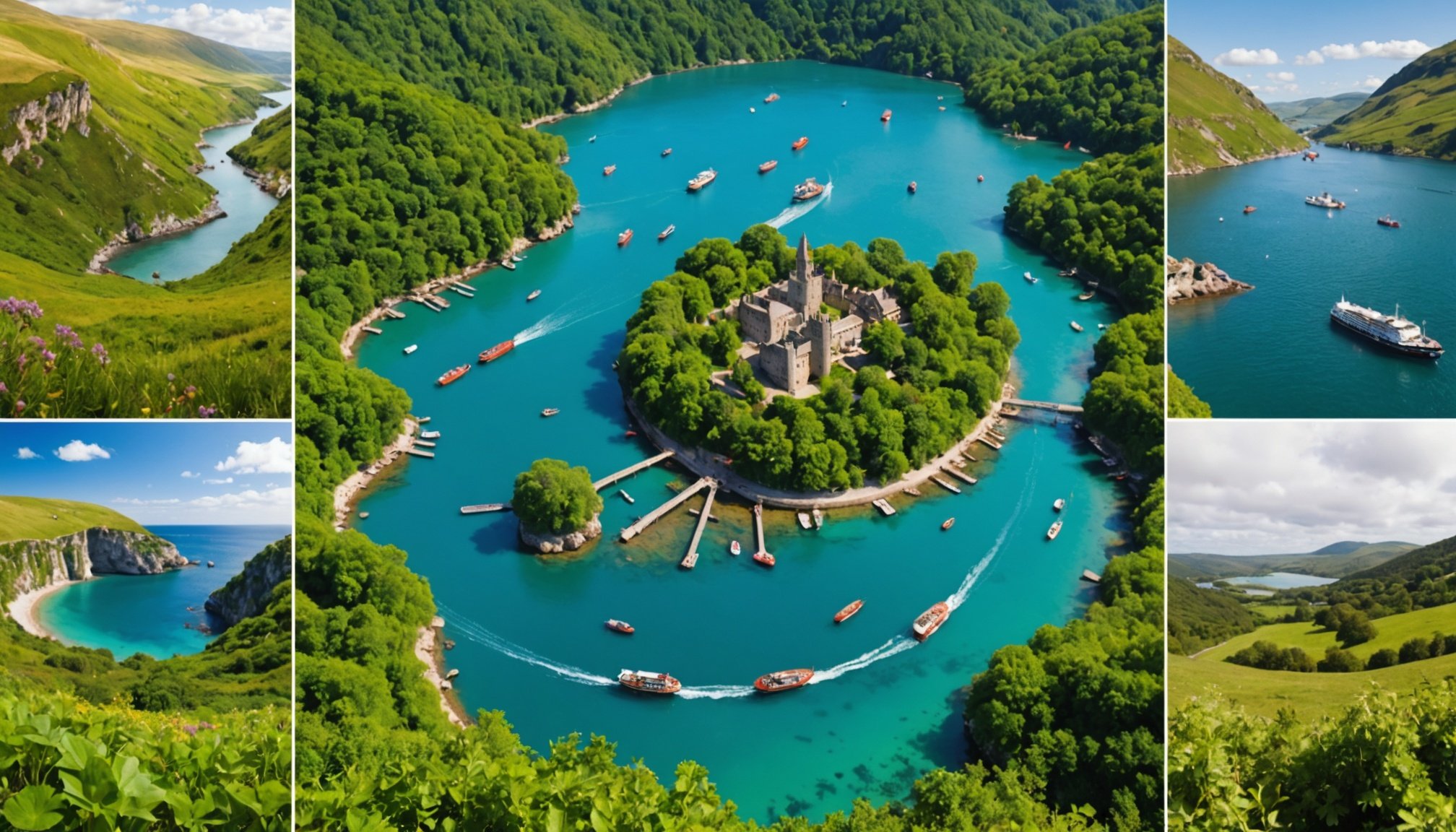Understanding the Eco-Tourism Market
The eco-tourism market in the UK is experiencing a notable rise due to increasing demands from environmentally conscious travelers. An essential factor driving this trend is the growing awareness among consumers about the environmental impacts of traditional travel. This shift in consumer mindset has led to a surge in demand for holidays that focus on sustainability and eco-friendly practices.
Eco-conscious travelers are often from a diverse demographic range, encompassing various age groups and lifestyles. These individuals value experiences that align with their values of conserving nature and reducing carbon footprints. They typically prefer destinations that offer unique cultural and conservation experiences over conventional tourist hotspots. Understanding these key demographics is crucial for businesses aiming to tap into this market.
Also read : Maximizing TikTok’s Power: Innovative Strategies for UK Skincare Brands to Boost Product Promotion
Sustainability is not just a buzzword but a critical determinant in consumer choices within the UK travel market. As customers become more educated about environmental issues, their purchasing decisions are increasingly influenced by the ecological credentials of service providers. Companies that prioritize transparent, sustainable operations are likely to hold a competitive edge. Environmental responsibility, along with honest communication about one’s sustainable journey, resonantly appeals to this growing segment, setting a solid foundation for success in the eco-tourism sector.
Effective Marketing Strategies for Eco-Tourism
To expand reach in the eco-tourism sector, businesses can leverage a mix of targeted eco-tourism marketing strategies and promotional techniques.
Also to see : Mastering pinterest: a definitive guide for uk custom furniture artisans to showcase their exceptional craftsmanship
Content Marketing and Storytelling
Authentic storytelling is vital. Highlight narratives that emphasize sustainable travel experiences. For eco-tourism, sharing stories about the community impact or environmental benefits can captivate your audience. This approach not only informs but also aligns with the values of environmentally conscious travelers.
Social Media Engagement
Platforms such as Instagram and Facebook offer opportunities to engage audiences with visually appealing content that reflects eco-friendly practices. Interactive campaigns and behind-the-scenes peeks into sustainable operations build trust. Engaging directly with followers through comments and real-time videos helps to create a community tied to sustainable travel values.
Email Marketing Campaigns
Crafting tailored email campaigns that resonate with the eco-conscious can be very effective. Focus messages on the benefits of sustainable travel, using persuasive language that underscores commitment to eco-friendly practices. Offering special promotions for sustainable choices encourages engagement and builds loyalty. Interactive elements, such as surveys or feedback forms, also enhance customer interaction.
By employing these sustainable marketing strategies, businesses can effectively communicate their value proposition, enhancing both engagement and loyalty within the eco-tourism market.
Case Studies of Successful UK Eco-Tourism Campaigns
Examining success stories in the UK eco-tourism sector reveals innovative and effective campaigns that have significantly influenced the industry. These case studies provide valuable insights into what makes eco-tourism promotions thrive.
Analysis of Successful Promotions
Several UK travel agencies have launched notable eco-tourism campaigns, utilizing a blend of strategies. These campaigns primarily focus on storytelling, community involvement, and environmental impact. By crafting compelling narratives that highlight local conservation efforts, these agencies manage to authentically connect with environmentally conscious travelers.
Lessons Learned and Innovative Tactics
From these case studies comes the understanding that transparency and education are key. Successful campaigns often employ educational content to inform potential travelers about the specific ecological benefits of their offer. Furthermore, incorporating local community partnerships not only enriches the traveler’s experience but also ensures a genuine connection with the destination.
Metrics Indicating Campaigns’ Effectiveness
Efforts are measured through various marketing metrics. These include increased engagement rates, improved conversion figures, and a surge in repeat bookings. Campaigns that resonate successfully bolster the agency’s reputation, confirming the efficacy of their eco-tourism marketing strategies. Understanding these metrics builds a framework for future campaigns, ensuring growth and sustained success in the eco-tourism market.
Target Audience for Eco-Tourism
Understanding the target market for eco-tourism is essential for crafting successful marketing strategies. The audience typically consists of individuals who are both environmentally aware and enthusiastic about sustainable travel. These travelers often fall into various demographic and psychographic categories, including age, lifestyle, and values.
Identifying Demographics and Psychographics
Demographic profiles of eco-tourists generally feature a wide age range, from young adults to retirees, all sharing a common appreciation for nature and conservation. Psychographically, these individuals value sustainability, cultural authenticity, and minimal environmental impact in their travel experiences.
Tailoring Offers to Specific Segments
To appeal to such a diverse group, businesses should customize their offerings. This could mean providing adventure travel packages that focus on conservation efforts or cultural excursions that support local communities. Aligning these offers with the values of each segment will enhance customer engagement.
Impact of Travel Preferences
Preferences for eco-tourists tend to align with adventure, conservation, and cultural experiences. Agencies need to use insights on these preferences to tailor marketing messages effectively. Highlighting how specific packages contribute to environmental sustainability or cultural preservation will likely resonate with these travelers. By aligning marketing efforts with these preferences, brands can forge stronger connections.
Digital Marketing Approaches for Eco-Tourism
In the evolving landscape of eco-tourism, leveraging digital marketing techniques is essential for effectively reaching an audience committed to sustainable travel. An impactful method is implementing SEO strategies tailored to emphasize eco-friendly destinations. By optimizing content with relevant keywords like “sustainable travel” and “green destinations,” companies can enhance their visibility to environmentally conscious travelers actively searching for such experiences online.
Partnering with influencers who focus on sustainability is another promising tactic. These influencers can authentically showcase eco-tourism strategies to their followers, adding credibility and expanding reach. By selecting influencers whose values align with the marketing goals, businesses can foster trust and enthusiasm among potential customers.
To streamline bookings, companies should consider online booking systems that highlight sustainability options. Such systems can emphasize eco-friendly accommodations and travel choices, making it easier for consumers to make informed decisions aligned with their values.
Key strategies include:
- SEO to enhance search visibility.
- Influencer partnerships to spread authentic messages.
- Online systems showcasing sustainable choices.
These tools can significantly enhance engagement, ensuring that businesses not only reach but also resonate with their audience. Deploying thoughtful, innovative digital marketing is essential for sustainability-focused travel enterprises seeking to thrive in the eco-tourism sector.
Measuring the Success of Eco-Tourism Marketing Efforts
In the fast-evolving world of eco-tourism, understanding the effectiveness of marketing efforts is vital. Companies must focus on measurable, tangible outcomes that demonstrate growth in environmentally conscious travel.
Key Performance Indicators (KPIs)
Effective assessment begins with identifying relevant KPIs. These indicators should monitor growth in website traffic, social media engagement, and booking conversions specific to eco-friendly offers. High visibility in the UK travel market and increased interaction from eco-conscious travelers on digital platforms can reflect successful campaigns.
Tools for Analysis
To facilitate precise evaluation, businesses should utilise tools and software designed to track these marketing metrics. Platforms like Google Analytics and social media insights help organisations analyse patterns and adjust strategies accordingly. Regular data reviews ensure that eco-tourism strategies remain aligned with consumer behaviours and preferences.
Feedback Mechanisms
Incorporating comprehensive feedback mechanisms is essential in refining marketing strategies. Engaging with customers through surveys and reviews provides invaluable insights into their travel experiences and expectations. Such feedback not only helps in understanding the needs of the target market but also supports continuous improvement in aligning offerings with sustainability goals. By integrating and analysing feedback, companies can enhance their eco-tourism initiatives, ensuring continued relevance and success.











